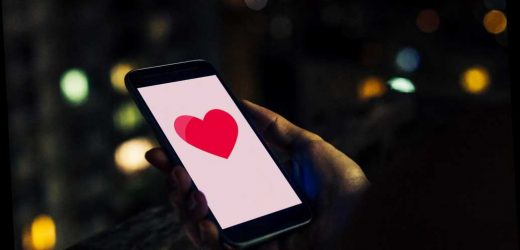More On:
dating
What is cupiosexuality? All about the term for asexual people who still want sex
The most outlandish reality shows in 2020
Closing on love: A broker’s tips for signing the contract on romance
Game over: How COVID ruined this skirt-chasing NYC playboy’s good times
Swiping for love may still have some social stigma, but it results in the same strong partnerships as those formed between people who met in person.
A new study published Wednesday in the journal PLOS One has suggested early criticism of dating apps was fear-mongering. While Tinder, Bumble and other matchmaking tech are often associated with one-night stands, casual sex or short-term relationships, those who meet on such sites often have stronger long-term relationship goals than those who meet in other ways.
According to a 2018 survey of 3,245 Swiss people by the University of Geneva, study author Dr. Gina Potarca said there is “no differences between couples initiated through dating apps and those initiated elsewhere regarding relationship and life satisfaction.”
In addition, she noted that women who met their partners via dating apps had “stronger fertility desires and intentions than those who found their partner offline.”
The study — titled “The demography of swiping right. An overview of couples who met through dating apps in Switzerland” — noted that over the past decade “phone dating apps have transformed the dating scene by normalizing and, according to some voices, gamifying the digital quest for a partner.”
But dating apps also apparently led to more couples with different educational backgrounds finding love. The study noted an increase in “mixing” of “high-educated women and lower-educated men,” according to a press release. That “may have to do with selection methods that focus mainly on the visual,” Potarca suggested, that apps’ photo-based prioritization of physical attraction may lead to more women overlooking a lack of education than they would in person.
Her research is especially relevant as a result of the ongoing coronavirus pandemic, which has made dating in person uniquely dangerous and difficult, with many turning to apps as an alternative.
“Knowing that dating apps have likely become even more popular during this year’s periods of lockdown and social distancing, it is reassuring to dismiss alarming concerns about the long-term effects of using these tools,” Potarca concluded.
Share this article:
Source: Read Full Article


